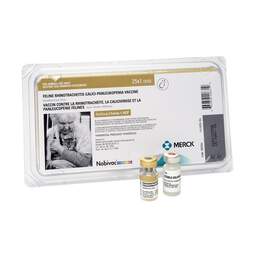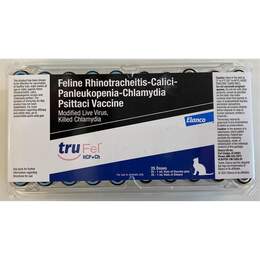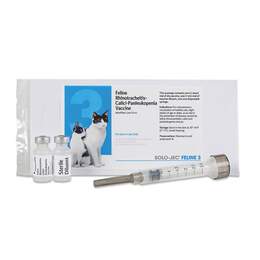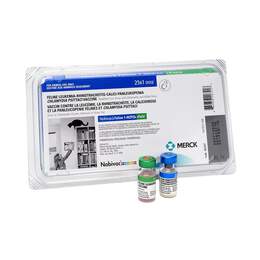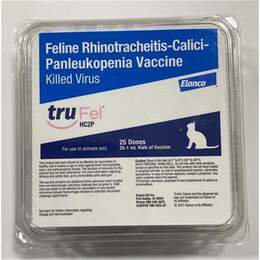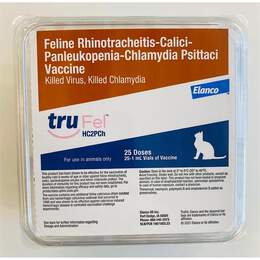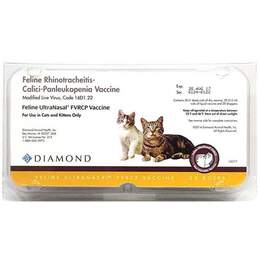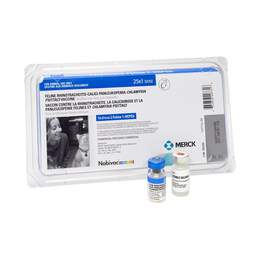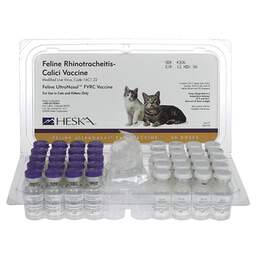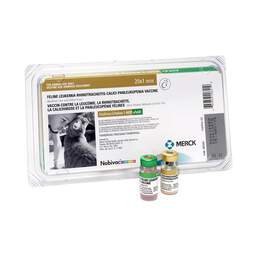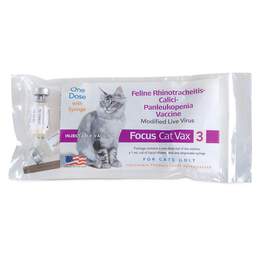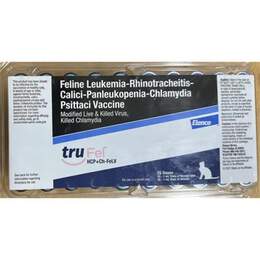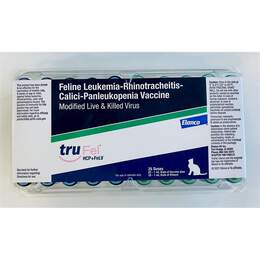Feline Distemper Vaccines
What are FVRCP and distemper?
FVRCP is an acronym that stands for feline viral rhinotracheitis, calicivirus, and panleukopenia (feline distemper). FVRCP is a core vaccine for cats. FVRCP is what veterinarians often call the feline distemper vaccine. Panleukopenia, calicivirus, and rhinotracheitis are three of the most common viruses in cats. The FVRCP is often used interchangeably with the term “distemper shot for cats,” because it protects cats against panleukopenia, or feline distemper. Therefore, the feline FVRCP vaccine and the distemper vaccine are one and the same. Many vaccines protect against distemper and other common illnesses, reducing the number of shots your cat requires. Distemper is a severe and highly contagious infection that causes immune system, gastrointestinal, and nervous system problems. Panleukopenia is an incredibly low white blood cell count that is similar to canine parvovirus.
What causes distemper in cats?
Feline distemper is caused by a highly contagious virus. It is spread through body fluids or ingestion of feces. The feline panleukopenia virus infects the intestinal tract and bone marrow. This causes extreme susceptibility to infections. Treatment for distemper in cats is incredibly difficult, which is why protecting your cat with a feline distemper vaccine is so important. So, what is distemper in cats? It is simply another term for panleukopenia.
What are the symptoms of feline distemper?
- Dehydration
- Sneezing
- Eye discharge
- Headache
- Runny nose
- Fever
- Trouble walking
- Loss of balance
- Sudden diarrhea
- Refusing to eat
- Vomiting
- Low white blood cell count
- Depression
- Lethargy
What are the risks and complications of distemper in cats?
Panleukopenia can lead to reproductive, gastrointestinal, and/or immune diseases. The symptoms listed above can be bothersome and have an adverse effect on your cat’s quality of life. Feline panleukopenia is incredibly contagious and potentially deadly. Therefore, it is crucial to vaccinate your cat and stay up-to-date on vaccines. Even indoor cats do need distemper shots to stay protected because the panleukopenia virus is so contagious and infections can become incredibly severe. Pet parents often ask, “How often does a cat need a distemper shot?” After a kitten receives their shots (the distemper shot is recommended beginning at 6 weeks of age, repeating every three to four weeks until the age of 16 weeks), a booster is recommended one year later. Boosters should continue every one to three years for the duration of your cat’s life. Because of the severity and incurability of feline panleukopenia virus, the cost of the distemper vaccine for cats is truly negligible in comparison to the potentially deadly disease it protects against.
What is the best feline distemper vaccine?
Allivet carries all the top vet-recommended feline distemper vaccines! The best options for your cat include:
- Feline Solo Jec 3 prevents diseases associated with panleukopenia, calicivirus, and feline rhinotracheitis viruses.
- Focus Cat Vax 3 vaccinates against feline rhinotracheitis, panleukopenia, and calicivirus.
- Nobivac offers several options for broad-spectrum protection:
- Feline 1-HCP protects cats against feline rhinotracheitis, calicivirus, and panleukopenia.
- Feline 1-HCPCh offers the same protections as Feline 1-HCP with added protection against chlamydophila felis.
- Feline 1-HCP+ FeLV prevents diseases caused by feline rhinotracheitis, calicivirus, panleukopenia, and feline leukemia virus.
- Feline 1-HCPCh+FeLV protects against the same diseases as Feline 1-HCP+ FeLV, but offers added protection against chlamydophila felis.
- Fel-O-Vax options include:
- IV + Calicivax, which vaccinates cats against feline chlamydia psittaci, calicivirus, rhinotracheitis, and panleukopenia.
- PCT + Calicivax, which protects cats from panleukopenia, rhinotracheitis, and calicivirus.
- LvK IV + Calicivax, which vaccinates against feline chlamydia psittaci, leukemia, calicivirus, rhinotracheitis, and panleukopenia.
- Fel-O-Guard makes many vaccines for comprehensive protection:
- Fel-O-Guard Plus 3 vaccinates against rhinotracheitis, calicivirus, and feline panleukopenia.
- Fel-O-Guard Plus 4 protects cats from diseases caused by panleukopenia, calicivirus, rhinotracheitis, and feline chlamydia psittaci.
- Fel-O-Guard Plus 4+Lv-K prevents diseases associated with feline leukemia, feline Chlamydia psittaci, rhinotracheitis, calicivirus, and panleukopenia.
- Fel-O-Guard Plus 3 + LV-K vaccinates against feline leukemia, rhinotracheitis, calicivirus, and panleukopenia.
- Feline UltraNasal Vaccines offer an alternate delivery method to vaccinate your cat against common illnesses.
- FVRC prevents diseases caused by feline calicivirus and feline rhinotracheitis.
- FVRCP protects cats against diseases associated with feline calicivirus, rhinotracheitis, and panleukopenia.
Talk to your veterinarian about the best treatment option for your cat, then come to Allivet for the best prices and fast, straight-to-your-door delivery of every medication and vaccine your cat requires!


